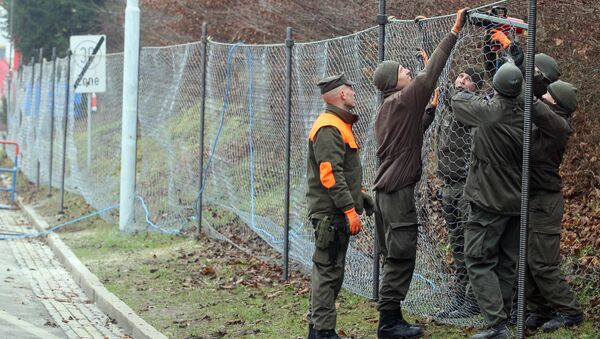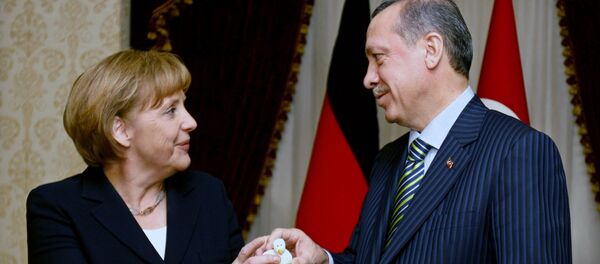"Everybody talks about stream of refugees, when in fact, it is only 0.2 percent of the EU population and for Germany it is only 1.25 percent. The problem is that this issue is politically charged and exaggerated," Germany Director of Human Rights Watch Wenzel Michalski said.
According to Michalski, the countries in the bloc’s east should be more open to accepting refugees, and it is not "sustainable" that Germany is the only one letting people in.
"With a more equal distribution, the burden on each EU state will be more acceptable for the population," the official added.
Europe is currently struggling to cope with a massive refugee influx, with millions of refugees fleeing war and poverty in the Middle East and North Africa in search of asylum in stable and wealthy EU states.
"I think the German government and politicians have voted for the tougher measures in fear that people will not vote for them in the upcoming regional elections," Human Rights Watch (HRW) Germany Director Wenzel Michalski said.
He described stricter refugee rules as little more than "a cosmetic change" to Merkel’s open-door policy. "But if the regionals show that Merkel’s party loses its support, we might see a permanent and drastic change to the refugee policy in Germany," Michalski predicted.
Sexual assaults in Cologne on New Year's Eve cast doubt on Merkel’s migration policy that opened doors to more than a million asylum seekers last year.
Over a million refugees have arrived in Germany alone last year.



